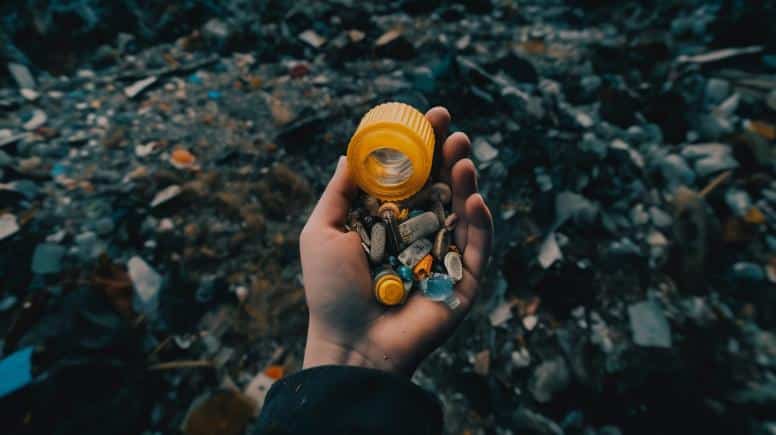Você já parou para refletir sobre o impacto de uma simples garrafa plástica no meio ambiente?
Navegando pelos vastos efeitos nocivos do plástico, este artigo [Combate à Poluição Plástica: Guia Prático] não só ilumina a importância vital de cada ação individual contra essa maré de degradação ambiental, mas também oferece estratégias reais que você pode implementar hoje para contribuir de maneira significativa. Desde a redução do uso de plásticos até o engajamento comunitário e a influência em mudanças políticas, aqui você encontrará um caminho prático para ser parte ativa na solução, transformando preocupação em ação. Vamos embarcar juntos nessa jornada?
Why is it important for everyone to combat plastic pollution?
The environmental impacts of plastic directly affect ecosystems and human health. Each year, 8 million metric tons of plastic ends up in the oceans, compromising marine life and infiltrating food chains through microplastics. Furthermore, the harmful effects of plastic include more than 100,000 animal deaths per year and devastating consequences for industries such as tourism and fishing, which can generate annual global costs of up to $2.5 trillion due to plastic pollution.
Individual actions such as using reusable items, effective recycling and supporting government policies are key to combating this problem. Choosing products with less or recycled packaging and participating in community cleanups are practical measures that help reduce the amount of plastic waste. Therefore, each of us has the potential to make a significant impact on preserving ecosystems and promoting a more sustainable economy.
What are practical changes I can make to reduce plastic use in everyday life?
To choose products with less plastic packaging, choose items with biodegradable or recyclable packaging and buy in bulk when possible. When it comes to reusable alternatives to single-use plastics, opt for reusable bags, durable water bottles and eco-friendly kitchen utensils. This guide provides detailed strategies for reducing plastic use.
The adoption of such practical habits is essential, considering that plastic seriously pollutes our oceans and threatens marine life, in addition to causing impacts on human health and damaging economies dependent on healthy ecosystems. Through conscious individual actions, we contribute to a significant reduction in plastic waste, protecting our health and natural beauty for future generations.
How can I act on plastic recycling effectively?
The numbers on plastic packaging represent the different types of resin used in their manufacture and are essential for selective waste collection, facilitating the recycling process. For example, the number 1 is applied to PET, commonly used in bottles, while the number 2 marks HDPE, common in detergent packaging. Understand the importance of these numbers it is the first step to separating plastic correctly and ensuring it is recycled. Properly recycling plastic can significantly reduce the volume of plastic waste, preventing these materials from ending up in the oceans and causing harm to marine life and ecosystems. Furthermore, actions such as choosing products with packaging that have greater recycling potential contribute to a sustainable life cycle of materials and minimize waste.
How can participating in community initiatives make a difference?
The benefits of involvement with beach and city cleanup groups are vast, including promoting a cleaner and safer environment, strengthening community awareness, and contributing to the preservation of local wildlife and ecosystems. Furthermore, these community activities can strengthen participants' sense of belonging and social responsibility. To participate in these initiatives in your community, you can start a search for existing groups or cleanup events using social media, community engagement apps or by visiting websites dedicated to environmental volunteering, such as eureciclo, where local initiatives are often publicized. By joining these collective efforts, each individual contributes significantly to combating plastic pollution and building a more sustainable society.
In what ways can I influence political and corporate change?
How can I support and promote government policies against plastic pollution? By supporting plastic waste legislation, you can lobby for meaningful change. This can be done by voting for politicians committed to zero plastic policies, participating in public hearings and sending petitions.
How can demand for products from eco-friendly brands put pressure on companies to adopt sustainable practices? By consciously choosing products from companies responsible for their environmental impact, consumers influence other companies to follow the same path towards sustainability.
Public pressure and support for government policies appropriate actions can lead to greater corporate responsibility. The power lies in the hands of consumers, whose demand for eco-friendly brands encourages responsible business practice. Remember, every choice counts.
What technological innovations are emerging to combat plastic pollution?
Technological innovations include bioplastics, which are derived from biological materials and can be an alternative to traditional plastic. Furthermore, chemical recycling emerges as a technology capable of transforming plastic waste into useful products again. These technologies face the challenge of microplastics, which are extremely harmful to the environment and difficult to collect and dispose of.
Bioplastics are made from renewable resources such as corn and sugar cane and have the potential to break down more quickly than petroleum-based plastics. By supporting products made from bioplastics, you are encouraging a more sustainable economy. To find out more about how to reduce plastic waste in the world, explore reduction and recycling initiatives.
Chemical recycling is a process that converts plastic into monomers or other chemical products through chemical reactions, enabling plastic materials to be recycled in their molecular form, which not only reduces waste but can also generate new raw material for the production of new plastics or other products. Through these innovative approaches, plastic waste can be drastically reduced, benefiting both the environment and the economy.
In this article, we explore the critical dimensions of the fight against plastic pollution, from its impact on ecosystems and human health to the practical changes we can implement in our daily lives to minimize this serious problem. We discuss reusable alternatives that replace disposables, how selective collection and recycling can be more effective, and how active participation in community and political initiatives can significantly contribute to this cause. Additionally, we reflect on promising new technological innovations that have the potential to redefine our future with sustainable alternatives to plastic. Every step we take, every conscious choice, is a step towards a cleaner and healthier planet for all of us. It is time to act, to engage and assume our role in the transformation we wish to see in our world.
Frequently Asked Questions (FAQ)
1. Why is combating plastic pollution essential for ecosystems and human health?
The environmental impact of plastic in the oceans is significant, with 8 million tonnes ending up in marine environments annually, leading to more than 100,000 animal deaths and potential damage to food chains with microplastics, with costs that could reach up to $2.5 trillion due to plastic pollution.
2. What actions can I take individually to reduce plastic pollution?
Adopting the use of reusable items, effective recycling, choosing products with less plastic packaging or recycled packaging, and participating in community cleanups are practices that can help significantly reduce the amount of plastic waste.
3. How can I separate plastics correctly for recycling?
Recognize the numbers on plastic packaging that identify the types of resin, such as number 1 for PET and number 2 for HDPE, to facilitate selective collection and ensure adequate recycling, reducing the volume of waste in the oceans and contributing to a sustainable cycle of materials.
4. How can I contribute to combating plastic pollution through community initiatives?
Participating in beach and city cleaning groups brings benefits such as a cleaner environment, awareness about wildlife preservation and strengthening the sense of community, and you can find these initiatives via social networks, apps or environmental volunteering websites.
5. How can I influence policy changes and sustainable business practices?
You can support government policies through voting, participation in public hearings and petitions, in addition to favoring products from ecological brands, encouraging the adoption of sustainable practices by more companies and generating a positive impact on the environment.

